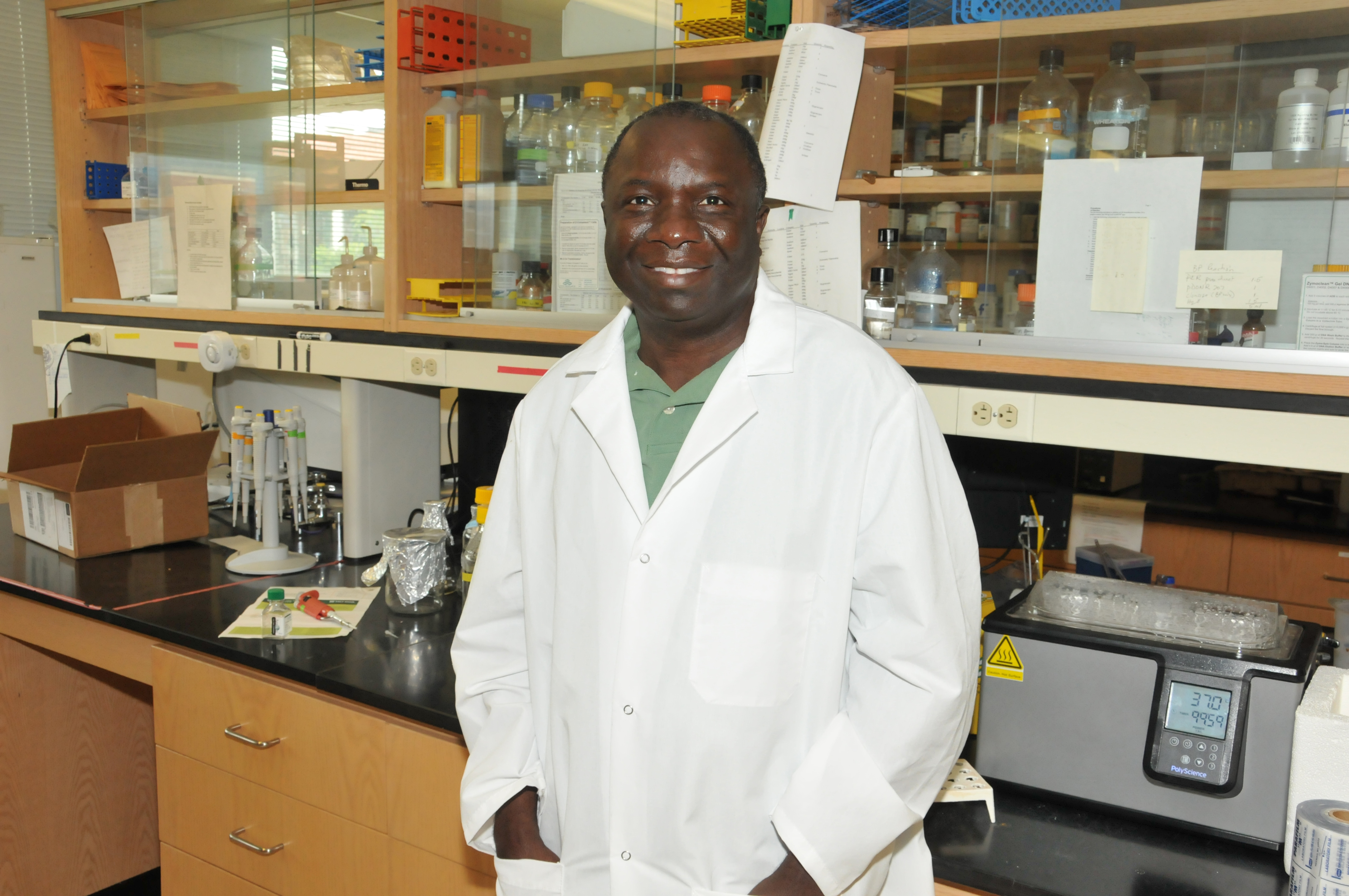
DSU Awarded Five-Year $1M Grant for DSU-PEA Initiative
Delaware State University has been awarded a five-year $1 million grant from the Howard Hughes Medical Institute (HHMI) and its Inclusive Excellence initiative.
The HHMI Inclusive Excellence Program aims to help increase the capacity of colleges and universities to effectively engage all students so they that they can be successful in science, especially undergraduates who enter four-year institutions via non-traditional pathways.
DSU is one of 24 schools to receive awarded the grant. Dr. Vincent Fondong, DSU professor of biological sciences and the principal investigator, said the funding will be used in support of the DSU Promoting Engagement and Access in Science (DSU-PEAS) initiative.
Dr. Fondong said DSU-PEAs is focused on recruiting more nontraditional students in the STEM (Science, Technology, Engineering and Mathematics) Programs and on providing them with the support to keep them in school through graduation. He defined nontraditional students as those who have either earn a GED diploma, come from a single parent family or be age 24 or above.
“”The most important part of the grant is help us identify nontraditional students, to understand their challenges and how we can assist them in STEM programs,” Dr. Fondong said. He said the funding will also support the development of lab programming, online courses and seminar training.
The HHMI initiative’s broad objective is to help colleges and universities to encourage participation and cultivate the talent of students in the natural sciences. In particular, the HHMI initiative focuses on those undergraduates who come to college from diverse backgrounds and pathways. These “new majority” students include underrepresented ethnic minorities, first-generation college students, and working adults with families.
“We’re thinking differently about how HHMI can help move science education forward,” said HHMI President Erin O’Shea. “The challenges this program addresses are important for all of us who care deeply about developing a more inclusive and diverse scientific community.”
In a significant move for HHMI, the focus of the new initiative has shifted the locus of responsibility onto the schools — improving the structure of the curriculum and the way it’s delivered, for example, and adjusting school policies and procedures, training faculty, and improving the climate and culture.
“Too many times we approach diversity with a deficit mindset in which interventions are aimed at ‘fixing the students,’” said David Asai, senior director for science education at HHMI. Instead, the new initiative focuses on the important work of making the culture of the institution more inclusive, he said. “We want to change the way schools do business.”
The Howard Hughes Medical Institute is the largest private, nonprofit supporter of science education in the United States.

